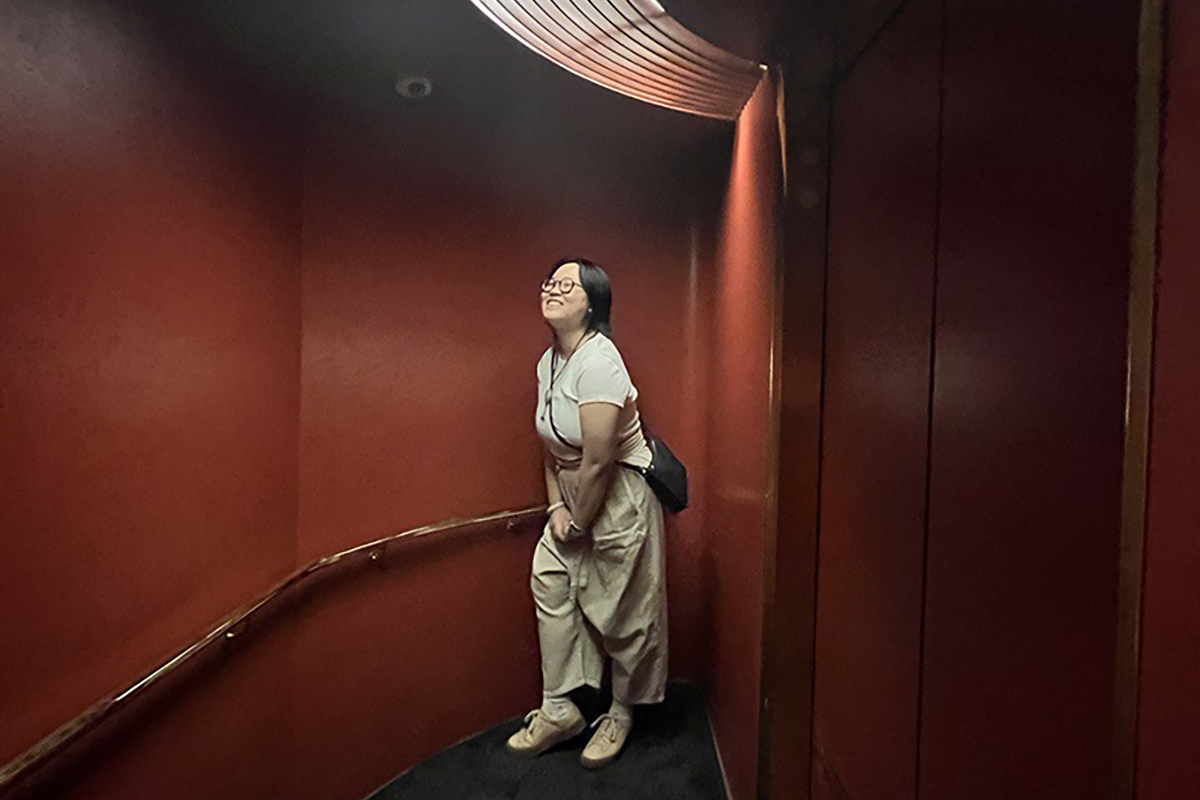
Please join us in welcoming Di Yoong to the Carnegie Mellon University Libraries as Social Sciences Librarian. Prior to joining the Libraries, Di was a Digital Fellow with The Graduate Center Digital Initiatives and an Adjunct Lecturer at several CUNY colleges.
We asked Di, who uses they/them/theirs pronouns, a few questions about themself and their plans for their new role.
What are your goals for this year as our new Social Sciences Librarian?
Being new to CMU and Pittsburgh, I see my first year as an opportunity to familiarize myself with the communities and local cultures, and to plug in wherever I can. Getting a sense of conventions and practices, as well as how folx are utilizing formal and informal resources is key to me. I want to know what has worked well and what gaps exist, and how that can translate to opportunities for collaboration and partnership in either creating something new or remixing something old.
I also know that I have big shoes to fill! My colleagues have been great at establishing relationships with the departments, and stepping in as the new Social Sciences Librarian, it is important to me that I continue to maintain and build new partnerships. I see myself visiting and participating in open departmental meetings, classes, and events to introduce myself, meet new folx, and learn about their projects and interests. My goal is to continue establishing the library as a great resource and collaborator in all aspects of their scholarly, learning, and teaching aspirations and pursuits.
How has your prior experience prepared you for this role at the Carnegie Mellon University Libraries?
I was a Digital Fellow for several years, and it provided me with the opportunities to grow in different ways. From developing workshops and coordinating research institutes on tools and data literacies to supporting The Graduate Center community through working groups and consultations, I gained quite a bit of experience in supporting beginner and foundational learners. Being in the program had also supported my growth and advocacy for utilizing open access and open source programs and applications, and cumulatively, led to the development of a semester-long Foundations of Data Science course that I taught this past Spring at City College of New York.
In a slightly different role, my training as a Critical Social Psychologist and my interest in digital spaces have led to big data and archival projects that explored discourses of identities in different spaces (e.g. BTS fandoms, alt-right communities). These projects have provided me opportunities to learn and apply a variety of approaches to data analyses and to explore different methods to working with data. Through this process of making mistakes and troubleshooting, it has informed my understanding of the frustration and (importantly!) the sense of achievement a learner will gain in their journey of picking up and applying a new skill.
Beyond content and subject expertise, my experiences have reflected the importance in providing and supporting informal, low intensity learning spaces, especially for those who did not have as many opportunities to learn. It is important to me that these spaces are accessible, and I hope to continue supporting and facilitating such spaces at CMU Libraries.
What projects are you excited to tackle in your first few months?
Firstly, I am grateful to be coming in at the start of the summer as it is providing me with the opportunity to ease into learning about what and who is in the library and departments. Therefore, in these first few months, I want to make the most of it by meeting new folx, and learning about existing resources and projects, to get a better sense of where and how I can be the most helpful before the start of a new academic year.
I am also stoked to learn about the projects my fellow colleagues are working on and how I can potentially be involved. I am constantly amazed by the variety of projects and interests that folx have and the innovative paths that these projects have taken. At the recent 40 years of the Architecture Archive event, I learned about how Lynn Kawaratani (Arts and Humanities Librarian) has been thinking about archives in the contemporary moment, such as considering the incorporation of artefacts that are not necessarily conventional (e.g. born-digital mediums, oral histories) but important. I am encouraged by the opportunities and support to think and do differently as I reflect on my interests and where it overlaps with the departments I will be liaising.
For now, though, I am focused on familiarizing myself with the resources at the libraries for Psychology, Social and Decision Sciences, and the Human-Computer Interaction Institute, and getting a sense of the various committees and services that makes up the core of what we do.
What do you like to do outside of work?
I have always loved making and building things (I used to make my own props for cosplaying!). And if you have the chance to swing by my office, you may notice the Lego models sitting on my shelves.
Something a little easier for me to carry around with me are my yarn projects. Often, I would knit and crochet when I am waiting for something, whether it is for a dataset to download or for my coffee to finish brewing. This has resulted in many of my friends and family receiving beanies and scarves as presents.
There is also something really satisfying about manipulating a large clump of clay, and whenever I have access to a pottery studio, I will throw some pots or build some large vases. I have made my own set of cups, bowls and plates, and it is quite nice to be able drink and eat out of something that I created.
Occasionally, I also enjoy playing some Switch games like Dave the Diver and It Takes Two. If you have any recommendations for similar games, please do drop me a message.
